Why Part-Time Jobs Might Outshine Coaching or Consulting for Your Second Act
Embracing Part-Time Work in Your Encore Career: A Balanced Approach to Leveraging Experience
Retirement—or as I like to call it, the “Second Act”—is increasingly viewed not as an end, but as a transition to new, fulfilling opportunities. Many retirees find themselves at a crossroads, eager to remain productive and share their abundance of skills and experiences. For some, this path leads to consulting or coaching; however, part-time work could often be a more effective and rewarding route. In this blog post, we’ll explore why part-time work might be the better option for experienced professionals and how to navigate this new terrain successfully.
The Growing Appeal of Part-Time Work
Flexibility and Balance
While consulting and coaching can offer flexibility, part-time work typically provides a more structured yet balanced schedule. Whether you’re working a few days a week or just a few hours daily, part-time work allows you to remain engaged and productive without the full-time commitment that consulting projects or coaching clients might demand. This balanced approach is especially important if you are caring for loved ones or want more leisure time.
Financial Stability Without Full-Time Stress
Part-time work can provide a steady income stream without the pressure of maintaining a full-time consulting business. For many retirees, financial stability is crucial, but so is avoiding the burnout that can come from stepping into high-pressure roles. Part-time positions often come with benefits that freelancers do not receive, like retirement plans, health insurance, or paid time off.
Opportunities for Social Engagement
One of the underestimated benefits of part-time work is the social engagement it provides. Working in an office, a store, or any other social setting allows you to interact with colleagues and customers, which can be incredibly fulfilling and help keep loneliness at bay.
Learning and Growth
Part-time work positions you in an environment where learning never stops. Unlike consulting, where you’re expected to have all the answers, part-time roles often include opportunities for ongoing education and skill development. This can be both stimulating and invigorating as you continuously adapt and grow.
Why Part-Time Work Might Be Better Than Consulting or Coaching
Predictable Schedule
With consulting or coaching, your schedule can be unpredictable. Clients can call at odd hours, deadlines can be tight, and the work can require extensive travel. In contrast, part-time positions come with fixed hours and less erratic demands on your time.
Lower Initial Investment
Setting up a consulting business or a coaching practice involves a considerable initial investment in terms of time, money, and effort. From building a business plan to marketing your services, the initial setup can be overwhelming. On the other hand, part-time roles require little to no financial investment and provide a quicker transition into work.
Reduced Responsibility
As a consultant or coach, you bear significant responsibility for your clients’ outcomes. This pressure can be stressful, especially when balancing other aspects of retired life. Part-time work, while still requiring commitment and competence, often shares the responsibility more broadly across a team, reducing the pressure on you personally.
Immediate Start
Consulting and coaching require building a client base, which can take months or even years. Part-time roles are often quicker to secure, allowing you to start more immediately and begin reaping the benefits of engagement and income without delay.
Steps to Finding the Right Part-Time Work
Identify Your Skills and Interests
Start by making a list of your skills and interests. Consider the industries you’ve worked in and the roles you’ve enjoyed. This will help you narrow down part-time opportunities that align with your strengths and passions.
Network and Research
Reach out to former colleagues, friends, and family. Networking can open doors that traditional job searching might not. Also, utilize job search websites that cater to retired professionals, such as Encore.org or RetirementJobs.com.
Customize Your Resume
Tailor your resume to highlight your relevant experiences but also focus on the unique value you bring as an experienced professional. Don’t forget to include any new skills or volunteer work you’ve done since your retirement.
Consider Volunteering
Volunteering can be a great way to transition back into the workforce. It helps you build a routine, expand your network, and sometimes leads to part-time employment opportunities. Non-profit organizations, local charities, and community centers often look for experienced professionals.
Be Open to New Opportunities
Finally, keep an open mind. Some part-time roles might surprise you with how fulfilling they can be, even if they’re different from your previous career. The key is to find work that not only leverages your experience but also aligns with your current life goals and desires.
Part-time work can offer a meaningful and balanced way to leverage your experience in your encore career. It provides the financial stability, social engagement, and continuous growth without the pressures commonly associated with consulting or coaching. As you embark on this new phase, remember that the journey is just as important as the destination. Embrace the opportunities, stay open to new experiences, and continue to share your invaluable skills and wisdom with the world.
After reading, if you feel inspired and want to explore this further, consider booking a call with me to discuss how you can start leveraging your experience in a part-time role. You can schedule a call with me here.






